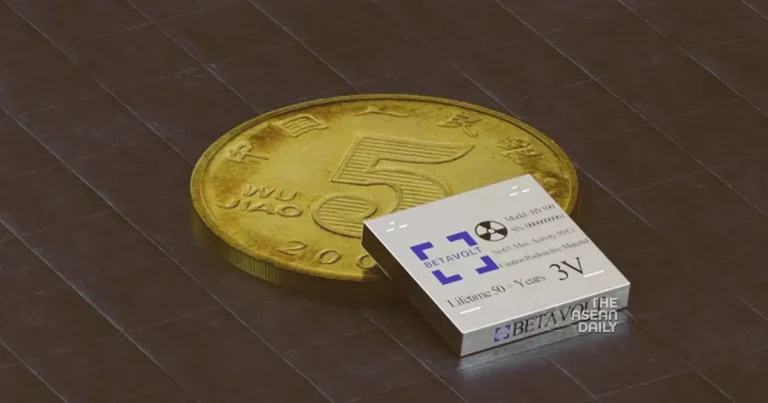19-1-2024 (BEIJING) A Chinese startup has developed an innovative nuclear-powered battery touted to outlast the devices it charges, offering near perpetual power in a miniscule package.
Beijing-based Betavolt Technology claims its prototype BV100 microbattery could enable smartphones and drones to operate continuously for decades without recharging. The company plans to begin mass-producing the batteries by end-2023.
The 15mm x 15mm x 5mm battery leverages energy from nuclear isotopes, converting it into usable electricity through semiconductor components. Nickel-63 provides the radiation source, with a half-life over 100 years that enables the battery’s 50-year lifespan.
Betavolt says the BV100 performs steadily from scorching 120°C heat to minus 60°C cold. It also resists damage from impacts and gunshots without fire or explosion risks, unlike conventional batteries.
While limited to an output of 100 microwatts currently, the company foresees pushing the nuclear battery to 1 watt next year. The miniscule power could run low-energy remote sensors or GPS trackers indefinitely.
The technology highlights innovative applications of nuclear decay, where unstable isotopes spontaneously emit energy until achieving stability. Different elements serve as suitable radiation sources.
China’s lunar rover used plutonium’s alpha radiation for power. NASA’s Mars rover employs similar tech. But Betavolt’s battery is classified as betavoltaic, directly converting electrons ejected by nickel-63 into usable electricity.

The firm developed a tailored diamond semiconductor to optimize this energy conversion, reaching 8.8% efficiency. By connecting modules, output can be scaled up or down.
Nuclear batteries traditionally powered military and aerospace systems requiring reliable, lasting power. But applications are expanding as technology improves efficiency and safety. U.S. firms also pursue related innovations.
Still, scaling the technology faces obstacles like material costs and recycling needs. And despite advantages, consumer adoption remains uncertain given nuclear power’s stigma. But if achieved, devices charging just once in a lifetime would constitute a dramatic breakthrough.
Betavolt’s bold battery exemplifies Asia’s relentless tech innovation. But realizing the prototype’s vast potential requires overcoming daunting commercialization hurdles. If it succeeds, our energy-hungry digital lifestyles may never be the same.




